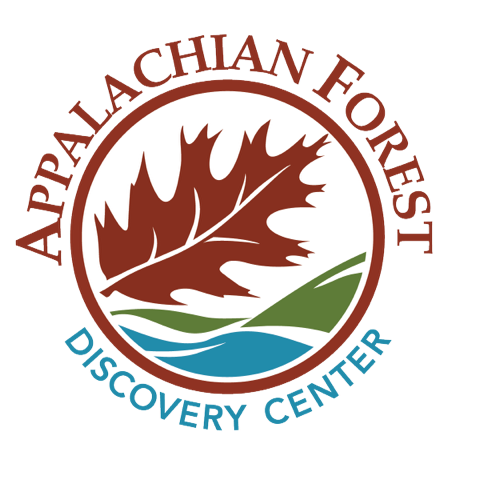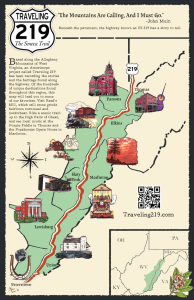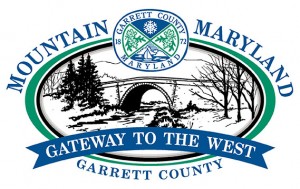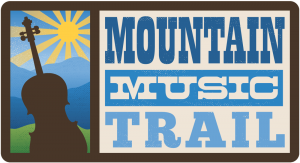Christmas on U.S. 219
by Jeffrey Kanode
On a side road just off of US 219, beyond Lewisburg, past Maxwelton, before Frankford and Hillsboro, I rediscovered the spirit, and the soul of Christmas. In that gentle countryside where the land rises and falls gracefully, where the land changes with subtlety and not abruptness, I discovered a place and a person I didn’t know existed. I discovered my deep need for more gracefulness of heart.
I was “penny pitching” with my buddy Rich Ford. Please allow me to explain: The Lewisburg Rotary had (and I suppose, still has) a program called “Penny Pitch.” Donations are solicited from the community; the names of families in need of a little help to make it through Christmas are submitted to the local committee; members of the Rotary visit and interview the families to assess needs. Later, just days before Christmas, Rotarians have the honor of assisting Santa Claus by delivering food, clothes, and toys to the families.
Winter days in West Virginia verge on two extremes: They can be breathtakingly beautiful, with snow dancing from the canopy of clouds, a soft cover of white giving both light and character to the seemingly dead, despairing trees. If not breathtaking in beauty, winter days in West Virginia are despairingly dark, hopeless; they are days when even the widest valley flanked by flowing mountains are as light-deprived as the tiny coal camps cramped into hollows between sheer grades of coal piles and ragged hills.
It was on a despairing West Virginia winter’s day when Rich and I journeyed to find a man named Junior. Our directions said to take a left off on 219 onto a certain road. Half a mile up that road we would find a green trailer. Up above the green trailer, on the same property, was Junior’s home.
The road off of 219 leading to Junior’s mom’s trailer was a gravel road, but the gravel only went so far and the road turned to dirt. It wasn’t cold enough to snow and a sorrowful rain began to fall. Rich and I knew our dirt road was liable to become mud very quickly. I was glad we were in Rich’s Jeep Grand Cherokee, and not my little vehicle.
Junior’s mom’s name was Gladys. She seemed a little leary at first: a Lewisburg lawyer (Rich) and a Lewisburg pastor (me) coming to her front door on a dreary December day. Even I wouldn’t have considered that a possibly positive event were I Gladys, my feet in her shoes, my soul in her life. When Rich explained to Gladys that we were trying to locate Junior, and we were potentially going to help Junior and his children for Christmas, her anxiety seemed to wane.
“Junior lives behind me. You follow the road right beside my driveway,” Gladys said.
I remembered seeing another trailer, a brown one directly behind Gladys’ trailer. That had to be Junior’s place. I said as much to Gladys: “So the brown trailer, behind us here, that’s Junior’s?”
“No,” Gladys gently corrected me. “That trailer belongs to my sister, Ruby. You have to go up the road a-ways to get to Junior’s. Just follow the road beside the driveway.”
The lawyer and the pastor climbed back into the lawyer’s automobile. Rich backed up a little and turned slightly to enter the road beside her driveway which Gladys told us would lead us to her son, Junior’s.
The road didn’t look like a road at all. Had it been christened a hiking path, I would have thought nothing of it. It was called a road, though: Adorned with tree roots and large stones for a median, this barely one-lane path was the road to Junior’s home. Rich and I exchanged looks and I offered to pray. I said it jokingly but I really wasn’t joking at all. He kicked the car into four wheel drive and we headed up the heavy grade.
We literally rocked and rolled our way up the road: The radio wasn’t on: Rich’s Cherokee was rocking over the ruts, and we very nearly rolled our way down the mountainside maneuvering around several tense curves. Finally I spotted a clearing in the woods. It looked like a little shack, a tool shed.
“We must be close,” I said. “Look, I bet that’s Junior’s tool shed or his carpenter’s workshop or something. The house must be just up here.”
Rich agreed with me so we drove on…until the road abruptly dead-ended around the next curve which ended in a muddy meadow. There was no more path, no more so-called road. There was no home. There was nothing by mud and emptiness.
The shack, the tool shed, the carpenter’s workshop, had to be Junior’s home.
“There’s just no way,” I said to Rich. I looked down at the Penny Pitch application again. According to the page, if a man named Junior did live in this shack, he lived there with three children between the age of six months and ten years old.
There was no place to park. We just left the Jeep in the middle of the now muddied, rutty road. There were a few steps leading up to the front door: the first and the third steps existed but the second step did not. It was a void where my entire foot would have disappeared had I not been watching. On the porch was an old refrigerator, and a Samsung black-and-white television with bunny ears like the one I had in my bedroom when I was a kid, the one I would watch The Dukes of Hazard on. The wind was starting to kick up, and as it moved up the mountain, through the leafless trees and onto Junior’s porch, a chill so cold and so hopeless ricocheted off the shack, and hit me again, freezing me to the bones and to the soul.
The door opened before we knocked. A tiny man, so skinny and so frail, appeared. His face was so chiseled I could see his cheekbones. His eyes were brown and bleak, His hair was thick and black, Elvis style, but peppered with gray. I glanced down at the application. Junior was exactly my age, but he looked like he had lived double our years.
Junior smiled, and without question he let us enter his home. He offered us a cup of the instant coffee he was drinking. When Junior smiled, the smile seemed authentic and it was a beautiful smile despite the fact they were teeth which clearly hadn’t been touched by an orthodontist’s hands in younger years, or a dental hygienists’ tools, in some time.
Contrary to stereotypes I carried with me up the mountain that day: the same preconceptions racing through my mind as I looked into Junior eyes as we chatted, I saw no beer cans littering the floor or stacked on the coffee table. There was no scent, nor were there any signs of cigarettes or pot. In grammar spot-on perfect, in cadences echoing the deep twang of Appalachian southern American English, Junior spoke. He did not hurry his words. He even pondered at points, looking for just the right words. In some moments, Junior was almost elegant in expression. As a pastor whose living is in words spoken and written, I was impressed. Maybe I was even a little envious, dare I say jealous, of how well this young many exactly my age spoke.
Junior explained he was laid off from the paper mill in nearby Covington, Virginia. He was looking for work, but it was hard searching because his car wasn’t running. In fact, he said, it was broken down at another family member’s house down past his mother’s home.
In words spoken haltingly, in a voice just barely not a whisper, Junior told us his wife had died a couple of months before with cancer. Her catastrophic illness very nearly had wiped him out, of spirit, of heart, of soul. Medical costs and no insurance left very little left monetarily.
When a baby started crying in the next room, without pause, with no hesitation, Junior leapt up. He came back carrying a little girl in pink. Junior held her so naturally, he held his daughter so closely to his chest. In his arms, in his comforting daddy presence, Junior’s daughter stopped crying.
Junior’s daughter was Lilly Ann, Lilly Ann in pink. Junior’s sons, Corey and Cody were at school.
Junior expressed interest in the law. Antonin Scalia cracked him up, he told Rich. Though he himself was a Democrat, Scalia was his favorite Supreme Court justice simply for style. He had once thought of law school, he told us.
Junior knew the Bible. He felt television pastors badly corrupted the holistic meaning of scripture by plucking verses and using them with no context, so similar to the way Southern slave owners of the American South had picked and plucked verses from the Old Testament to defend their own treatment of humanity. Junior also had a fascination with redaction criticism, and he wanted to know if I ever used it in sermon preparation as a pastor. I had never been asked that question. I haven’t been asked it since. Junior’s father had been to seminary and was a pastor for a while, he said.
“The children do need clothes,” Junior said. “Corey and Cody would love some books. We just can’t get out to the library much these days. They enjoy Harry Potter and I want them to get into C.S. Lewis. Lilly Ann could use a few more toys, like blocks or puzzles, toys to make her think, toys to develop her brain and her motor skills.”
Junior told us it pained him to tell strangers what his own children needed for Christmas, so those strangers would provide for those needs. This year he could not provide for those needs and this year he did not want his children to do without. Next year, Junior said with the rhythm of hope, he would provide for his children again.
Rich and I assured Junior it was okay. The lawyer said before the pastor did, “You just hit a really bad patch of luck, brother. The same could have happened to us. It just happened to happen to you, and not us. You would help us if you could.”
“Yes, I would,” Junior said in a voice getting choked, looking at us with those weary brown eyes now dancing lively with tears.
The winds continued rumbling through the barren trees and I was certain there was no insulation, just the plywood between us and the winds. Lilly Ann was quiet and content now. Her daddy gave her a bottle and sat her in an old—but immaculate—play pen—beside his weathered, duct-taped recliner, while he went to throw more chips of wood in the wood burning stove sitting in the corner.
When Junior was done stoking the stove, Rich told him we would do what we could. He was certain Rotary would be able to help the family, and he and I would be back in a couple of weeks with whatever we could provide for Christmas.
“And we will come about this time of day,” my sensitive friend who was also a daddy, said, “when Corey and Cody are in school. That way…Santa Claus will still make the magic happen on Christmas morning.”
Junior wasn’t able to say anything, but his hand on Rich’s shoulder and the dancing in his eyes spoke his heart.
Rich and I said very little on the drive down the mountain from Junior’s home, then past Glady’s, and back down to 219, towards our homes in Lewisburg.
Rotary’s Penny Pitch was able to provide everything Junior needed for his children’s Christmas. There were also funds found to help him with heating costs for their home. Junior was just as warm, just as human, just as engaging, and even more grateful when we returned weeks later with wrapped presents for him to put under the tiny Christmas tree by then he and the children had put up and decorated.
On drop off day Junior dialoged with me about the Suffering Servant motif in Isaiah, and the age-old debate about whether the Suffering Servant was the Christ, or Israel itself.
“I think it can be both. It doesn’t need to be either, or.” Junior said. “Israel the people, as a whole can be the One who brings redemption out of suffering. It can also be the single person of the Messiah who saves through suffering love. It’s appropriate for the Christian to see the Suffering Servant as Jesus. It’s appropriate for Jewish people to see within their own history, within their own story as a family, as a community, the Suffering Servant, as well. It just doesn’t have to be either, or.”
I couldn’t say it any better myself, and I never had. I told Junior so.
Junior told Rich he thought Brown Verses Topeka Board of Education was pure poetry, surpassed only by Lincoln’s Second Inaugural to nourish the American spirit, to uplift the American soul, to build a community, a national family, out of America.
Rich and I both expressed to each other later on how much we both thought about Junior, and what an amazing guy he was.
I told Rich I wanted to go up to Junior’s again someday and take him out for coffee. I told Rich I wanted to go with Junior to take his children to the fountain in downtown Lewisburg where they could run and play in the summertime sun. I never did.
On a muddy road that really wasn’t a road at all, off of US 219, I found Christmas that year. I found in the midst of the most terrible example of poverty I had ever seen, a remarkable young guy who, like the country all around him in the best of times, in the spring times and in the summer times, exuded life: Sometimes wounded, often knocked down, but forever striving, forever becoming, in expression and in giving, alive.
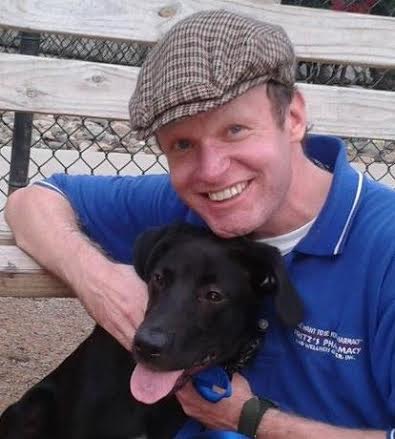
Contributing writer Jeffrey Kanode is a Methodist Minister at Ona, W.Va., in Putnam county. He was Associate Pastor at Lewisburg’s United Methodist Church from 2007 until 2011. Jeffrey grew up in Princeton, in Mercer County, West Virginia.
Category: Blog, Collections, Family & Community, Marlinton to Lewisburg, Stories






